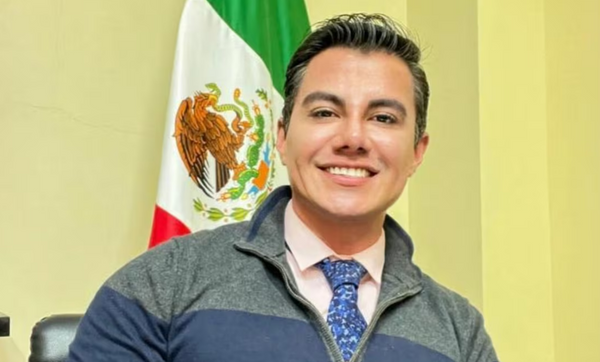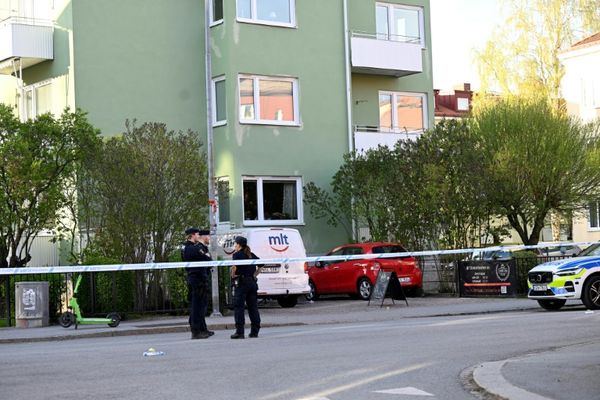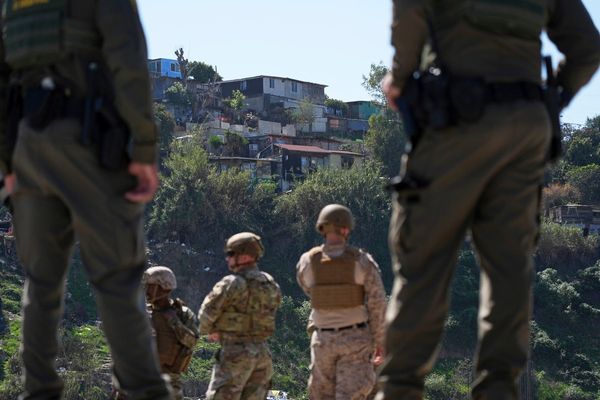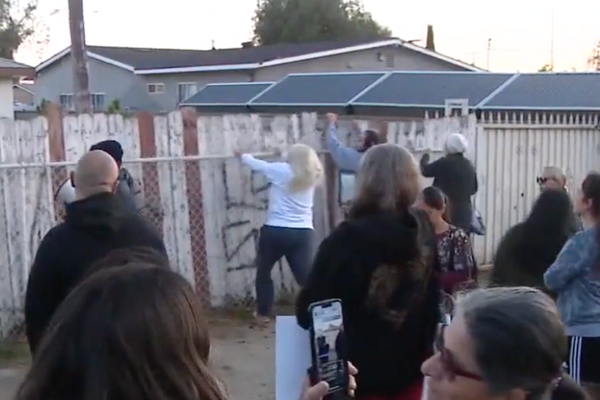The federal department of Health and Human Services is investigating four top U.S. medical schools after receiving allegations of antisemitic incidents during their 2024 commencement ceremonies, it announced this week.
“Every student deserves access to educational opportunities free from discrimination and harassment,” Anthony Archeval, Acting Director of the Office for Civil Rights at the department, said in a statement.
The investigation will reportedly target Harvard, Columbia, Brown, and Johns Hopkins, The Wall Street Journal reports, each institution among America’s most prestigious medical schools.
The investigations appear to be based at least in part on allegations of antisemitism from a study published in an Israel-based medical journal.
The paper scrutinized video of commencement ceremonies at a variety of U.S. universities, including those beyond the four reportedly targeted in the investigations, and honed in on students who were wearing keffiyeh scarves, traditional Arab garments often worn as a sign of Palestinian pride or protest, as well as scrutinizing various protest slogans featured on signs and graduation stoles.
The agency notified Harvard it began its compliance review after reading a January story in the New York Post citing the study, according to a letter obtained by Harvard’s Crimson student newspaper.
The Independent has contacted the medical schools of Harvard, Columbia, and Johns Hopkins for comment.
A spokesperson for Brown told The Independent that Health and Human Services informed the university on Monday it was initiating a compliance review related to events during the medical school’s 2024 commencement ceremony, “prompted by claims in a news article published last month.”
“We are confident that our actions in response to a protest on an adjacent public street were in compliance with both Title VI of the Civil Rights Act of 1964 and the Affordable Care Act, and we'll provide details directly to HHS in our response,” the school said. “We will remain resolved in our efforts to ensure a campus community where all individuals feel safe and valued and where no instance of antisemitism, Islamophobia or any other form of discrimination or harassment in violation of Brown's policy is tolerated.”
Harvard told Becker’s Hospital Review it "condemns antisemitism and remains committed to combating all forms of discrimination and harassment.”
“Columbia strongly condemns antisemitism and all forms of discrimination, and we are resolute that calls for violence or harm have no place at our University,” the university told the Post in the January article.
The investigations are the latest signal of the Trump administration’s priority of cracking down on alleged antisemitism on college campuses.
The president has signed executive orders calling for civil rights investigations of antisemitism on campus and canceling student visas of pro-Palestinian protesters, whom the White House has deemed “Hamas sympathizers.”
This week, it also formed an interagency task force involving the Departments of Justice, Education, Health and Human Services and others, dedicated to fighting antisemitism.
In doing so, the new administration is wading into the complicated legal and philosophical debate about what constitutes antisemitism.
The study reportedly at the center of the Harvard investigation, for instance, identifies as examples of antisemitism common protest language like “divest now,” or students echoing international observers who deem the Gaza conflict a “genocide,” along with more charged messages like students wearing stoles that allegedly read “Jerusalem is Ours.”
Like the White House, the study relies in part on the International Holocaust Remembrance Alliance’s definition of antisemitism, which considers many forms of criticism of Israel to be antisemitic.
Speech advocates including the ACLU have warned in recent months that the definition is over-broad and partisan, risking chilling legitimate criticism of a war that’s killed over 60,000 people.
In the U.S. at least, many of those leading anti-Israel protests on campus are Jewish themselves.
U.S. free speech law grants considerable protection to protest, including through views and symbols deemed offensive.
In the late 1970s, the ACLU famously defended a group of Nazis challenging blocks on a planned demonstration in Skokie, Illinois, a town with a large population of Jewish people and Holocaust survivors.
Those speech protections are more ambiguous on a private college campus receiving government funds, though.
The Trump administration’s focus on campus antisemitism and anti-Israel protest comes as the Republican said this week he wants to take control of the Gaza Strip and oversee its rebuilding, displacing millions of Gazans in a proposal criticized as a form of ethnic cleansing.







